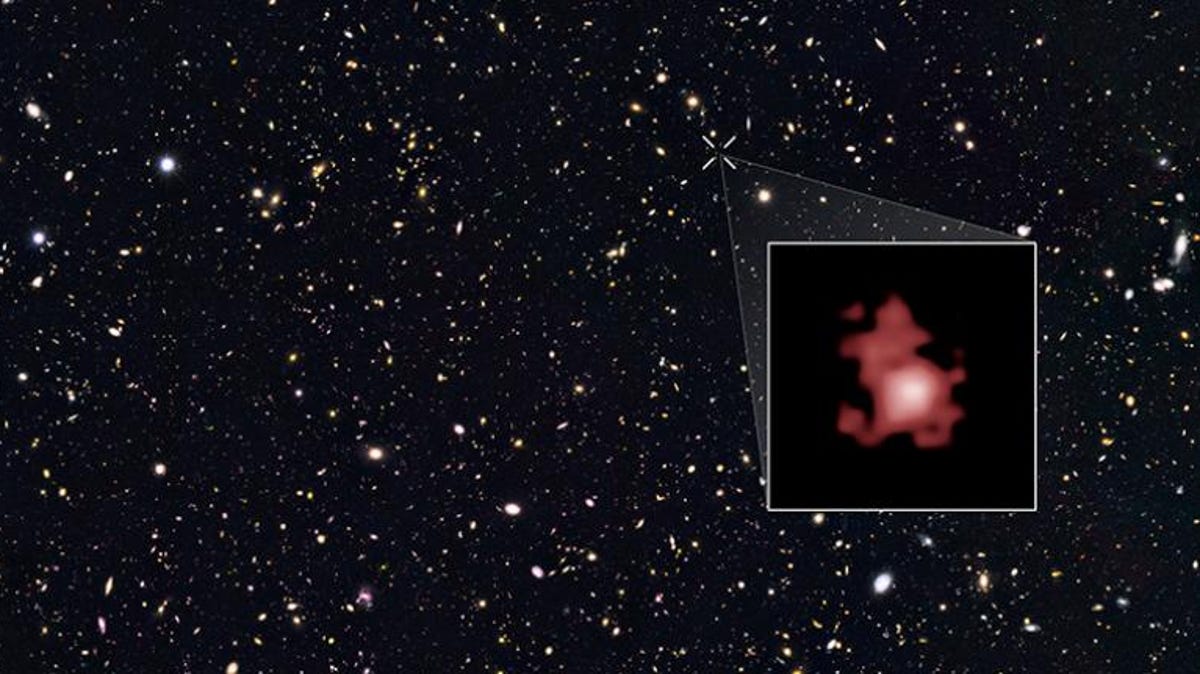Scientists on Wednesday announced the discovery of the oldest black hole ever seen, a 13-billion-year-old object that is literally “eating” its host galaxy.
Astronomers made the discovery with the James Webb Space Telescope.
The oldest black hole is surprisingly massive – a few million times the mass of our Sun. The fact that it's so early in the universe “challenges our assumptions about how black holes form and grow,” according to a statement. University of Cambridge In England
News of the discovery was published in the study on Wednesday “A Small and Massive Black Hole in the Early Universe” In a peer-reviewed journal Nature.
'A buffet for black holes'
“Seeing this supermassive black hole is very early in the universe, so we have to consider other ways they could have formed,” said the lead author. Roberto Maiolino, Cambridge's Cavendish Laboratory and the Kawli Institute for Cosmology. “The very early galaxies were very gas-rich, so they would have been like a buffet for black holes.”
According to the University of Cambridge, astronomers believe that supermassive black holes found at the center of galaxies like the Milky Way grew to their current size over billions of years. But the newly discovered size of the black hole suggests that they could have formed in different ways: they could have been born 'larger' or they could have eaten matter at a rate five times greater than thought.
“This black hole basically eats [equivalent of] A full sun every five years,” Maiolino said NPR. “It's actually a lot more than we thought possible for these black holes.”
The James Webb telescope heralded a 'new era' in astronomy
Launching in 2021, the James Webb Space Telescope is the largest and most powerful astronomical observatory ever sent into space.
In Webb's two years, the telescope provided stunning views of our solar system's planets, galaxies, stars and other parts of the universe.
“It's a new era: a giant leap in sensitivity, especially in the infrared, like an overnight upgrade from Galileo's telescope to a modern telescope,” Maiolino said. “Before the web came online, I thought that if you went beyond what we could see with the Hubble Space Telescope, the universe wasn't that interesting. But it is not so: the universe is very generous in what it shows us, and this is just the beginning.
Contributing: Eric Lagata, USA TODAY; Associated Press

